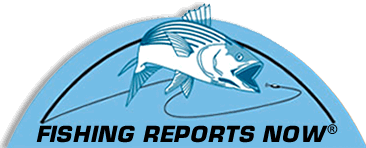Options for Summer Flounder
And Sea Bass Regulations
From the Atlantic States Marine Fisheries Commission:
ASMFC Approves Draft Addendum XXV for Public Comment
Addendum Proposes Management Options
For the 2014 Summer Flounder and Black Sea Bass
Recreational Fisheries
Annapolis, MD – The Atlantic States Marine Fisheries Commission’s Summer Flounder, Scup and Black Sea Bass Management Board approved Draft Addendum XXV for public comment on proposed 2014 management approaches for summer flounder and scup recreational fisheries.
For summer flounder, the Draft Addendum includes options that allow for management measures by region and the sharing of unused quota – both with the intent of providing more equity in recreational harvest opportunities along the coast.
The specific regions being considered are (1) Massachusetts; Rhode Island through New Jersey; Delaware through Virginia; and North Carolina and (2) Massachusetts and Rhode Island; Connecticut through New Jersey; Delaware through Virginia; and North Carolina.
Draft Addendum XXV was initiated to address a growing concern that current summer flounder management measures (as established under the Fishery Management Plan) are not providing recreational fishermen along the coast with equitable access to the resource.
Those measures, involving state-specific recreational management measures under conservation equivalency are increasingly being viewed as problematic due to several factors.
These factors include: reliance upon recreational harvest estimates for a single year (1998) as the basis for individual state targets; a change in the abundance and distribution of the resource; and changes in the socio-economic characteristics of the fishery.
The impact of the management program seemed to affect New York the most, with a 21” size limit (by 2009) and a very short season including mid-season closure.
In 2013, with a fully recovered stock, New York’s minimum size (19”) was at least one inch higher than any other state, one and a half inches higher than its bordering states.
The Draft Addendum proposes a more flexible and equitable conservation approach that allows the management program to adjust to past, current, and future changes to the resource and the fishery.
The biological characteristics of the summer flounder have changed with the restoration of this stock.
In particular, there has been a substantial expansion in the size and age composition, with greater overall abundance and increased numbers of larger fish.
The Draft Addendum also proposes two options for the 2014 black sea bass recreational fishery (1) coastwide measures (currently proposed at 13” TL minimum size, a 5 fish possession limit, and a season from June 1 to September 30) or (2) the continued use of management measures by northern (MA – NJ) and southern regions (DE – NC).
The regional management approach has been used since 2011 and offers some advantages over coastwide regulations, which can disproportionately impact states within the management unit.
Specifically, regional measures can address geographic differences in the stock (size, abundance and seasonality) while maintaining the consistent application of management measures by neighboring states.
It is anticipated that several states will be conducting public hearings on Draft Addendum XXV. Information on those hearings will be released when it is finalized.
Fishermen and other interested groups are encouraged to provide input on Draft Addendum XXV, either by attending state public hearings or providing written comment.
The Draft Addendum will be posted to the Commission website (wwww.asmfc.org) by December 20, 2013.
Public comment will be accepted until 5:00 PM (EST) on January 24, 2014 and should be forwarded to Kirby Rootes-Murdy, Fishery Management Plan Coordinator, 1050 N. Highland St., Suite 200 A-N, Arlington, VA 22201; 703.842.0741 (fax) or via email at krootes-murdy@asmfc.org (Subject line: Draft Addendum XXV).
###
----------
Tina Berger
Director of Communications
Atlantic States Marine Fisheries Commission
1050 N. Highland Street, Suite 200A-N
Arlington, VA 22201
703.842.0740
tberger@asmfc.org
www.asmfc.org
Visit us on Facebook and Twitter
Healthy, self-sustaining populations for all Atlantic coast fish species or successful restoration well in progress by the year 2015





